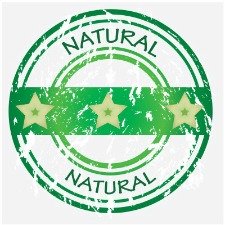natural soap making
Traditional natural soap making was an annual or semi annual event that took place, often in the fall, on the homesteads and farms of early settlers to make use of the large supply of tallow and the lard.
Soap making was in the early days viewed as an activity that took place outdoors because of the very strong odor that was given off by the fat.
Today soap making can be viewed differently and soap making supplies have a more global twist to them.
Nowadays a lot of the items, which are required, are obtained online and you can access many quality grades of soap making supplies by ordering them on the internet. Click here to view some natural soap recipes.
Creating your own soap can allow you to be very imaginative, it can also allow you to test and use more healthier ingredients.
We use soap every day for a multiple of reasons. Soap is used on and absorbed by our largest physical organ ― skin.
What makes handmade soap more natural than commercial soap?
Commercial soap is not always soap.
Many largecompanies extract the glycerin (natural by-product of the soap making process thatmoistures skin) from their product to sell for big profits.
Once glycerine is gonefrom their product, all these large companies are left with is detergent. Thatis why these fake bars of soap are called “Beauty Bars” or “Moisturizing Bars”. Because of the unatural ingredients they cannot evencalled it soap. How ironic it that?
Your best ways of knowing what is going into your body isto read the labels. You might be shocked…by what you find goes in to your soap,if it is even called soap.
The term NATURAL is somewhat a subjective term.
There is not yet a regulated definition for natural andeveryone seems to have their own spin or tolerance level to what natural is oris not. Soap can be made with natural soap making supplies,which means that these ingredients can be found in nature and are healthy foryour skin.
This does not mean that natural soap is chemical free; we know thatsoap must have lye (sodium hydroxide) in it. You cannot make soap without lye. Personally, I think that the definition of natural should be thought of in layers and degrees and more specifically what you are looking for.

There are typically 2 types of scents a synthetic one and a “natural”one. You can scent your soap with fragrance this is a perfume type one which is synthetic and natural scents come from essential oils. Please beware that essential oils as most soap making supplies have quality grades that vary.
Note that antibacterial soap often contain an ingredient called triclosan which is classified as a pesticide. Reading your labels allows you to know what goes into your skin
Your skin might require a soap made with gentle soap making ingredients and no fancy stuff. You may love the smell of Ocean Breeze and decide that it is worth having this little element deviate from the whole natural equation.
I guess that I know that by making my own soap, I am already one step ahead of industry’s standards. From this point, you need to consider what you feel is natural…
Many people feel that natural soap making can contain lard or other ingredients from the grocery store because it is more natural than what is in commercial soap and they are right. Find some basic soap recipes by clicking here.
Others want to abstain from using animal products or inferior oils for their natural soap making.
The list of fats, oils and butters for soap making supplies is bountiful from olive oil, to shea butter and beeswax. Of course there are grade qualities to these products and some can be certified organic.
If you are wondering ?????? if you can get a natural soap base for melt and pour soap making, there seems to be a consensus that they are not all created equal and you need to read the labels.
It seems the most natural soap making process is cold processing soap making.
Color and scents are added to soap for the experience and sometimes therapeutic properties. There are more natural choices for coloring your soaps and many come from your kitchen.
Leave Natural soap making and go to Homepage
Recipes
About Soap Making
Soap Making Methods
- How to Choose Soap Making Recipes
- Melt and Pour Soap Making
- Cold Process Soap Making
- Room Temperature Soap Making
- Hot process soap making
- Rebatching Soap Making
- Liquid Soap Making
More Great Stuff!
Site Policies
By Ron & Andrea Rennick, Copyright © 2012 to 2015 www.ridgesoap.com
– All Rights Reserved
